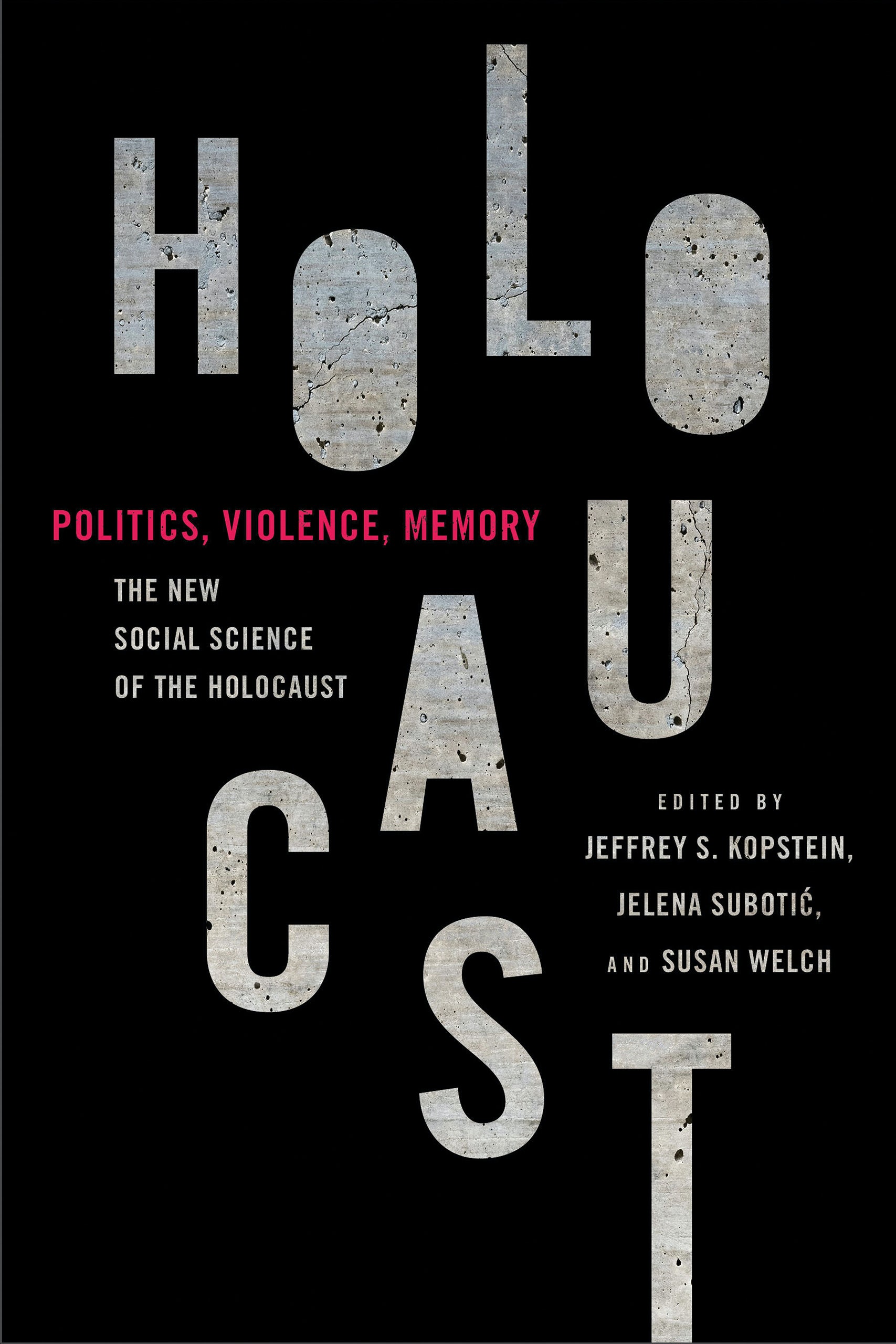New research on the Holocaust, on Jewish resistance and local collaboration in the killing offers insights into genocides, atrocities, and political violence. We discuss this research and other social science findings about the Holocaust in a new book Politics, Violence, Memory: The New Social Science of the Holocaust.

How does historical memory make researching the Holocaust a greater challenge? [ dur: 58mins. ]
- Jelena Subotic is Professor of Political Science at Georgia State University. She is the author of Hijacked Justice: Dealing with the Past in the Balkans and Yellow Star, Red Star: Holocaust Remembrance after Communism.
- Jeffrey Kopstein is Professor of Political Science at the University of California, Irvine. He is the author of Intimate Violence: Anti-Jewish Pogroms on the Eve of the Holocaust and the editor of Growing Apart? America and Europe in the 21st Century.
Together they are editors of Politics, Violence, Memory: The New Social Science of the Holocaust.
Excerpt from the publisher:
Politics, Violence, Memory highlights important new social scientific research on the Holocaust and initiates the integration of the Holocaust into mainstream social scientific research in a way that will be useful both for social scientists and historians. Until recently social scientists largely ignored the Holocaust despite the centrality of these tragic events to many of their own concepts and theories.
In Politics, Violence, Memory the editors bring together contributions to understanding the Holocaust from a variety of disciplines, including political science, sociology, demography, and public health. The chapters examine the sources and measurement of antisemitism; explanations for collaboration, rescue, and survival; competing accounts of neighbor-on-neighbor violence; and the legacies of the Holocaust in contemporary Europe. Politics, Violence, Memory brings new data to bear on these important concerns and shows how older data can be deployed in new ways to understand the “index case” of violence in the modern world.
This program is produced by Ankine Aghassian, Doug Becker, Mihika Chechi, and Sudd Dongre.
Podcast: Play in new window | Download (Duration: 58:01 — 53.1MB) | Embed
Subscribe: Apple Podcasts | Spotify | RSS